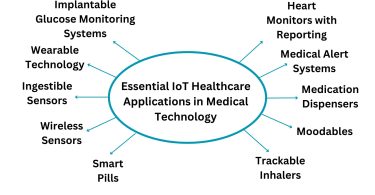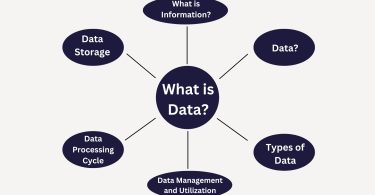Big data describes data sets that are too big or complicated for conventional data-processing application software to handle. While data with more fields have more statistical power, they may also have a larger rate of false discoveries. With the advancement in technology, data mining has become a lot easier than it was before. However, with this huge influx of data that is being generated, we are now faced with issues like privacy and security. This blog post will give you an overview of what big data is and how it helps in healthcare. It will also tell you some ways to protect yourself when doing your daily online activities so that your information remains safe and private.
Big Data Helping in Healthcare. With the advancements in technology, such as digital devices, easy access to social media posts are becoming easier for consumers to find out about new trends or different happenings happening around them even more quickly than expected.
Big data is a term used to describe the volume of information available that is being generated by consumers. This information can be found in a number of formats, including text, images and video. With the help of advanced analytics techniques, businesses are able to use big data and make better business decisions more quickly. They would have the ability to generate insights more quickly, and develop new products, reducing time to market all resulting in an improved competitive position and economy mic value for shareholders. The collected data can also be used for health purposes such as advising on healthcare or predicting drug interactions which leads to better patient care.
Big Data have the ability to provide fresh perspectives on illness risk factors. It is possible to interact with each patient more closely and import data from connected devices or mobile health applications. These data have the potential to be examined and used in real time to encourage alterations in behavior that can lower health risks, lessen detrimental environmental exposures, or improve health outcomes.
Data can be collected from every place where you leave your identity (known as metadata). This includes your smartphone, your computer, or any social network that you are on. Information can be collected from your financial transactions and even track where you are going.
Data is also collected from all the devices that you interact with such as meters for diabetes and scales for weight loss. In short, data can be collected about any activity that you do on a daily basis.
Metadata is the information about how and when data is generated which includes information such as location, frequency of interaction, duration of interaction and the type of activity.
Healthcare in Europe is starting to undergo a transformation thanks to big data, which provides ways to both improve the health of individuals and the efficiency and effectiveness of healthcare organizations. To find the best foundation on which to customize health optimization for each individual’s prevention, diagnosis, and illness treatment, significant data must still be collected and analyzed in a timely manner.



